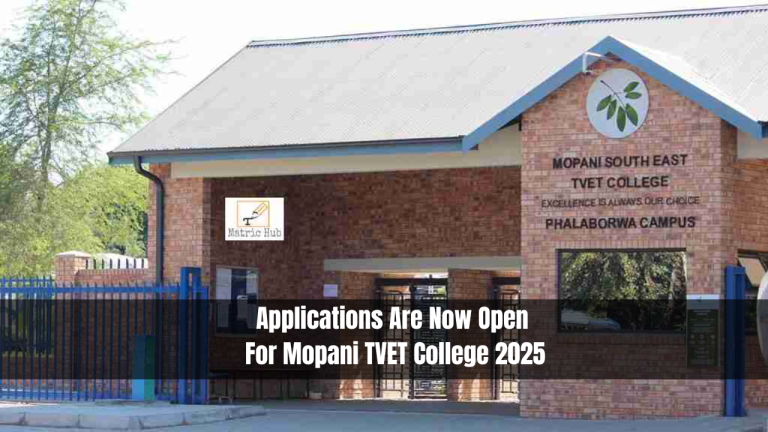TVET Colleges As A Viable Alternative To University

TVET Colleges As A Viable Alternative To University. In a rapidly changing economy where practical skills are in high demand, TVET colleges in South Africa are becoming increasingly recognised as valuable institutions for post-school education. For decades, the default ambition for school-leavers was to pursue a university degree. However, times are changing. Technical and Vocational Education and Training (TVET) colleges are now being seen not as a fallback, but as a smart, skills-driven route to employment, entrepreneurship, and further study.
The Mindset Shift: Redefining Success Beyond University
For a long time, societal norms in South Africa equated success with holding a university qualification. But the growing unemployment rate—even among graduates—has forced many to reconsider their options. This has led to a paradigm shift where students and parents alike now see TVET qualifications as legitimate and even preferable.
TVET colleges are ideal for those who want to gain hands-on experience, start earning sooner, and enter fields with high employability rates. These institutions focus on practical learning, enabling students to develop marketable skills that are in high demand across industries.
What Makes TVET Colleges Stand Out?
Unlike universities, which often focus heavily on theory, TVET colleges blend classroom instruction with real-world practice. Many programs include internships, learnerships, or apprenticeships, allowing students to apply their knowledge in real work environments.
| Field of Study | Career Outcomes | Demand in SA |
|---|---|---|
| Engineering | Electrician, Fitter, Mechanic | Very High |
| Hospitality | Chef, Hotel Manager, Tour Operator | High |
| Information Technology | Web Developer, Network Administrator | High |
| Agriculture | Farm Manager, Agricultural Technician | Growing |
| Business Management | Office Admin, Entrepreneur | Consistently High |
These colleges are tailored to train artisans, technicians, and entrepreneurs, the very backbone of South Africa’s economic infrastructure.
Designed for the Job Market
South Africa is currently facing a shortage of skilled workers in trades and technical sectors. TVET colleges were designed specifically to address this gap. Employers are actively seeking graduates who are ready to work from day one—people who understand their tools, can work independently, and meet industry needs.
- Plumbers
- Electricians
- Coders
- Automotive Technicians
- Welders
- Hospitality Managers
TVET graduates are also increasingly becoming self-employed, running small businesses in their communities or freelancing across industries.
From TVET to University: Articulation Pathways
Many students fear that choosing a TVET college means they cannot further their studies. This is a myth. South Africa’s National Qualifications Framework (NQF) provides articulation pathways, enabling TVET graduates to enrol in university degrees later.
This means a student could complete an NC(V) or NATED course at a TVET college and then apply to complete a diploma or degree at a university or university of technology.
TVET Is a Choice, Not a Compromise
One of the most significant developments is that learners are choosing TVET colleges intentionally, not as a backup. They are drawn by the affordability, employability, and time-efficiency of these programmes.
TVET education empowers students to:
- Join the workforce faster
- Reduce financial burden on their families
- Learn relevant and current industry skills
This approach helps young South Africans become financially independent sooner and start contributing to their households and communities.
Affordable and Funded: Financial Support for TVET Students
Affordability is a major draw. While university tuition can be expensive, TVET college fees are generally lower and financial aid is widely available.
| Funding Option | Description |
|---|---|
| NSFAS | Covers tuition, transport, accommodation, books |
| Fundi | Offers education loans and bursaries |
| Merit Bursaries | Provided by colleges or provincial departments |
| Learnership Stipends | Paid by companies during internships |
The National Student Financial Aid Scheme (NSFAS) plays a critical role in ensuring that financially needy students can access technical education without being burdened by costs.
Support at Every Step: Platforms Like FundiConnect
For those navigating the transition from school to TVET, platforms like FundiConnect offer invaluable assistance. They help prospective students with:
- Choosing the right TVET college and course
- Understanding career prospects
- Navigating the TVET application process
- Securing financial assistance
FundiConnect is especially useful for first-generation college students who may be unfamiliar with post-school education options.
This kind of holistic support ensures that learners don’t just enrol—but actually succeed and thrive.
Why Employers Prefer TVET Graduates
TVET graduates are not only job-ready—they are industry-specific. Employers understand that these graduates have:
- Worked with real tools and technologies
- Completed job shadowing or internships
- Developed soft skills such as teamwork, communication, and problem-solving
According to recent data from the Department of Higher Education and Training (DHET), employment rates for TVET graduates in certain fields are even higher than those of university graduates.
Real-Life Examples of TVET Success
Many South Africans who attended TVET colleges have gone on to build successful businesses, become artisans, or even lead departments in major corporations.
For example:
- A TVET graduate in electrical engineering might open an electrical services company.
- A hospitality student could become a chef at a top-tier hotel or start a catering business.
- An agriculture graduate may manage a farm or become an agribusiness entrepreneur.
These stories are becoming increasingly common, showcasing the life-changing impact of technical education.
FAQs About TVET Colleges in South Africa
Can I go to university after completing a TVET qualification?
Ans: Yes. Through South Africa’s articulation pathways, you can progress from a TVET diploma or certificate to a university degree, especially in universities of technology.
Is financial aid available for TVET students?
Ans: Absolutely. NSFAS fully funds qualifying students at public TVET colleges, including tuition, accommodation, and learning materials.
Are TVET graduates employable?
Ans: Yes. TVET colleges are known for producing highly employable graduates, particularly in fields like engineering, IT, hospitality, and agriculture, where hands-on skills are crucial.
Conclusion
Gone are the days when TVET colleges were seen as second-rate. With their practical focus, job-readiness, and industry partnerships, these institutions are now leaders in South Africa’s skills development landscape.












